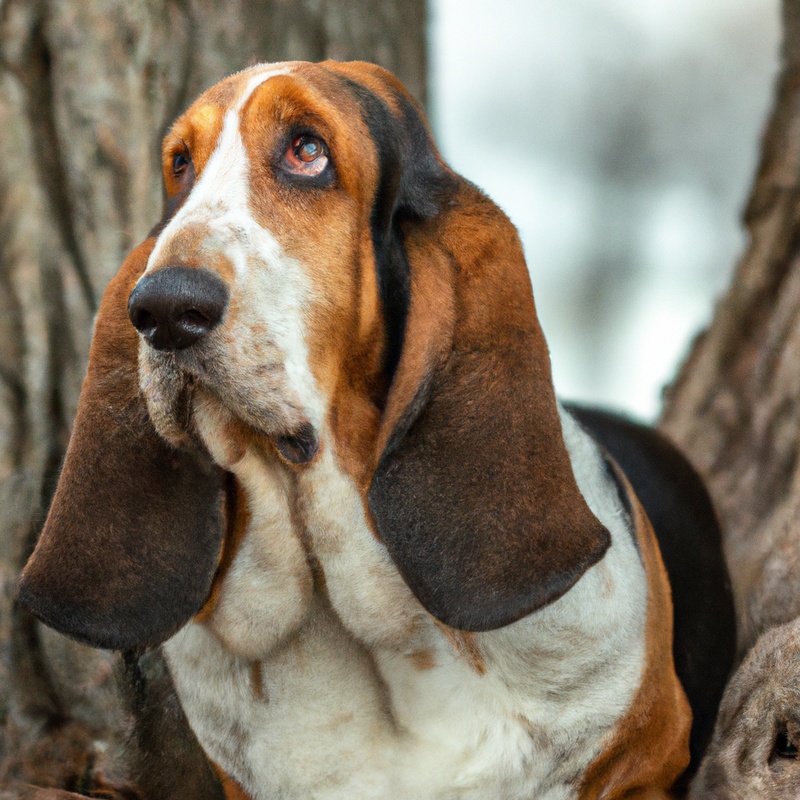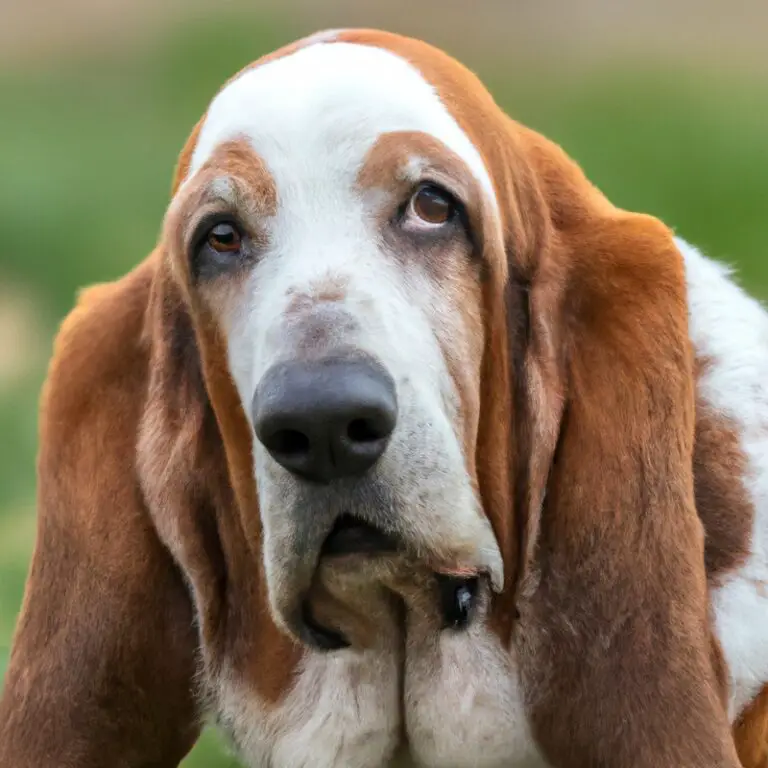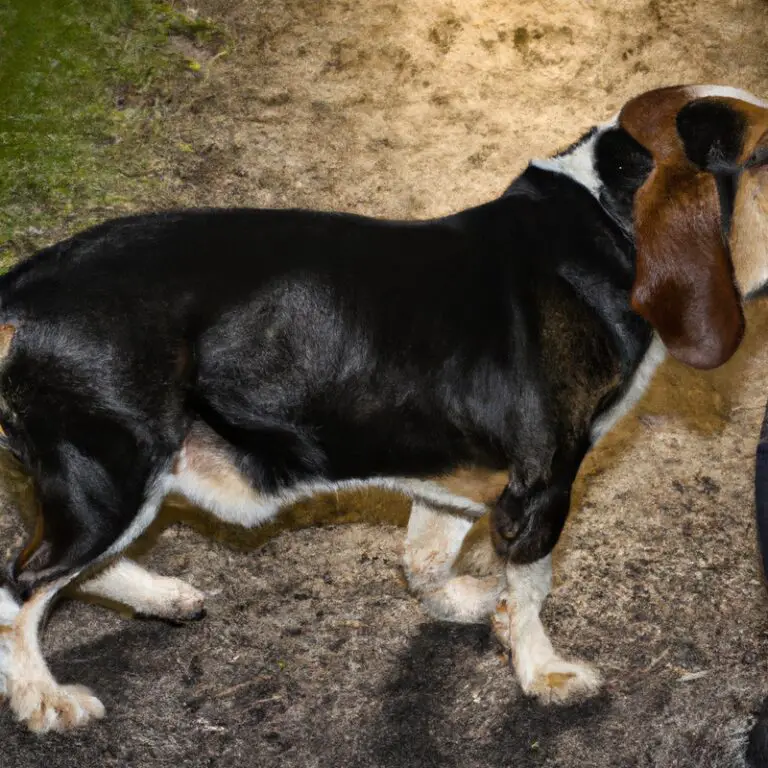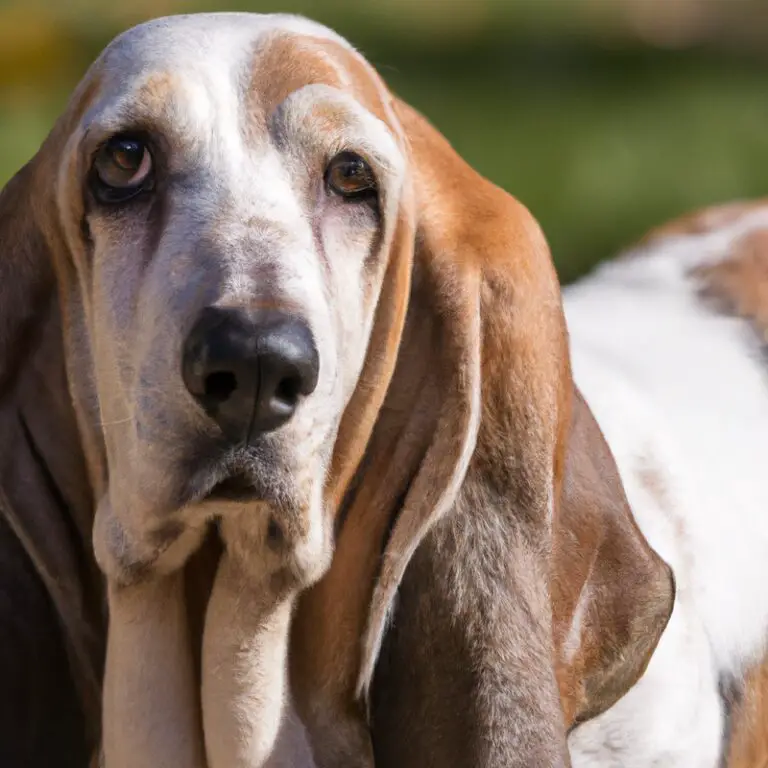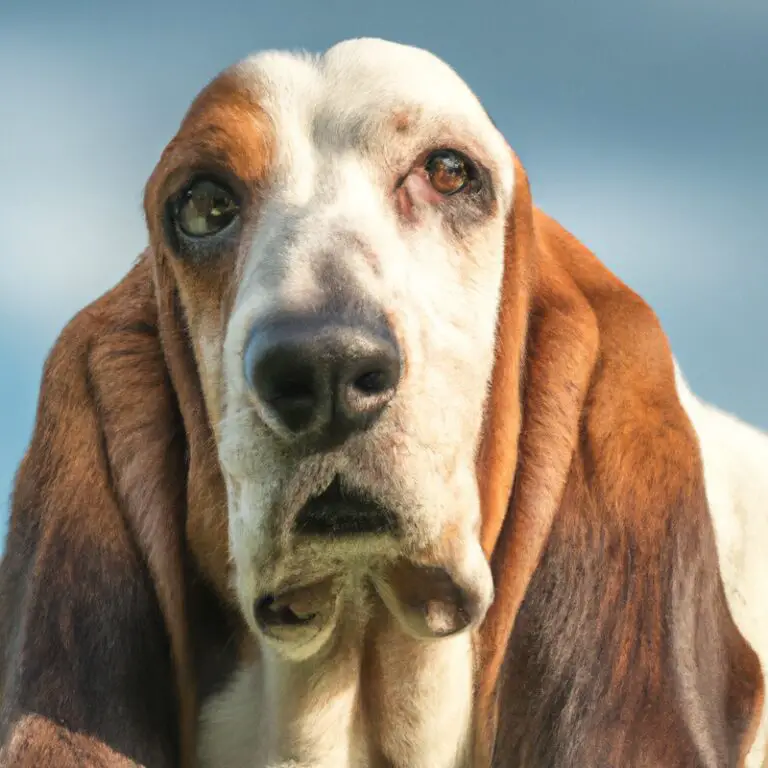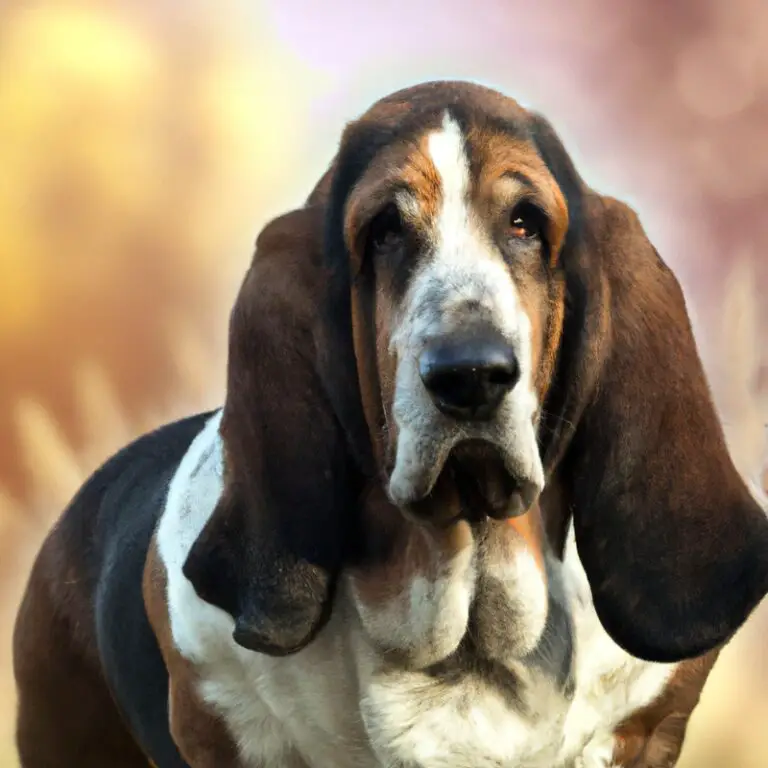What Are Some Potential Challenges Of Owning a Basset Hound?
Key Takeaways:
- Training can be challenging due to their stubborn nature.
- They are prone to certain health issues, such as obesity and ear infections.
- Basset Hounds have a strong prey drive and may be difficult to control off-leash.
- Their long ears and droopy eyes require regular cleaning and attention to prevent infections.
Are you considering bringing a Basset Hound into your family? With their droopy ears, soulful eyes, and a nose that could rival a bloodhound’s, these charming dogs have stolen the hearts of many dog lovers.
But as with any breed, owning a Basset Hound comes with its own set of challenges.
From health issues to stubbornness and the high energy levels, there are a few things you need to know before adding this lovable breed to your home. In this article, I’ll dive into the potential challenges of owning a Basset Hound and provide you with some tips on how to overcome them.
So, let’s bark up that tree and get started!
| Potential Challenges of Owning a Basset Hound |
|---|
| Breed Characteristics |
| Health Concerns |
| Exercise Needs |
| Grooming Requirements |
| Training Difficulties |
About Basset Hounds
Appearance and physical characteristics
Basset Hounds are known for their unique appearance and physical characteristics.
They have a long, low-set body with short legs and droopy ears that hang down.
Their large, expressive eyes and wrinkles on their face give them an adorable and sometimes sad expression.
Bassets have a dense, short coat that comes in various colors, including tri-color (black, white, and brown) or bi-color (lemon and white).
This breed is medium-sized, with males weighing around 55-65 pounds and females weighing around 45-55 pounds.
Their distinct look makes them easily recognizable and loved by many.
Temperament and personality traits
Basset Hounds are known for their friendly and laid-back temperament. They are generally good-natured, gentle, and sociable dogs.
They get along well with children and other pets.
Bassets are known for their loyalty and love to be part of the family. They are relaxed and not easily agitated, which makes them great companions for those seeking a calm and peaceful pet.
Bassets do have a stubborn streak, but with patient and consistent training, they can be well-behaved and obedient.
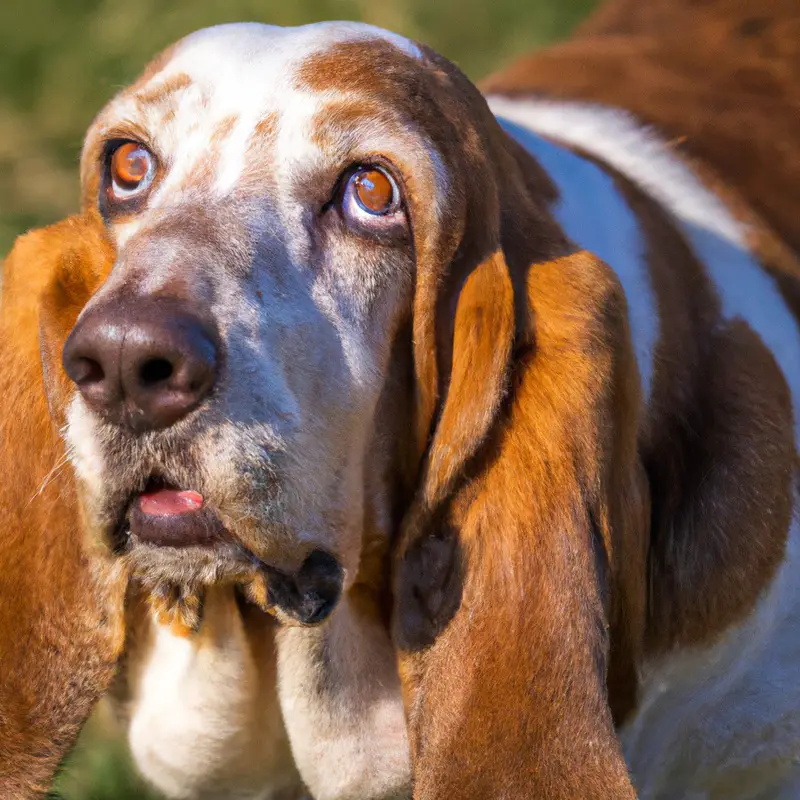
Exercise and grooming needs
When it comes to exercise, Basset Hounds have moderate needs. They enjoy daily walks and playtime but can also be content with indoor activities.
Grooming-wise, Basset Hounds have a short, dense coat that requires regular brushing to keep it clean and remove loose hair.
Their ears, however, need special attention due to their length and susceptibility to infections. It’s important to clean and dry their ears regularly to prevent issues.
Remember to also trim their nails and brush their teeth for overall hygiene.
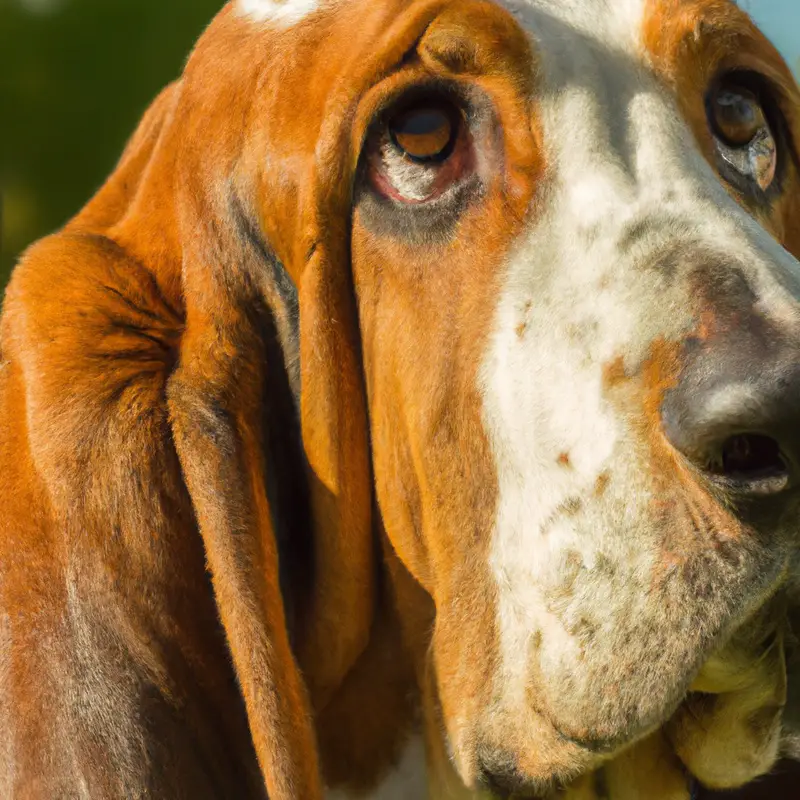
Potential challenges of owning a Basset Hound
Health issues common in Basset Hounds
Basset Hounds are generally healthy dogs, but they can be prone to some health issues. Here are some common health problems seen in this breed:
- Obesity: Basset Hounds have a tendency to gain weight, so it’s important to monitor their diet and provide regular exercise to keep them fit and healthy.
- Ear infections: With their long, droopy ears, Basset Hounds are more susceptible to ear infections. Regular cleaning and inspection of their ears can help prevent this problem.
- Back problems: The long, low back of Basset Hounds puts them at risk for intervertebral disc disease. It’s important to avoid excessive jumping or rough play to minimize the risk.
- Eye problems: Basset Hounds are prone to eye conditions like glaucoma and cherry eye. Regular eye examinations and proper care can help detect and manage these issues.
- Joint issues: As a large breed, Basset Hounds can develop joint problems such as hip dysplasia. Providing a balanced diet, regular exercise, and joint supplements (if recommended by a vet can help maintain their joint health.
Regular veterinary check-ups and preventive care are essential for addressing these health issues and keeping your Basset Hound in good shape.
Stubbornness and difficulty in training
Basset Hounds can be quite stubborn and may present some challenges when it comes to training.
They have a strong independent streak and may not always be motivated by traditional training methods.
Their stubbornness can make it difficult to teach them commands and proper behavior.
Patience, consistency, and positive reinforcement are key in successfully training a Basset Hound.
It’s important to find training techniques that work well for their specific personality and needs.
Consistent training sessions and using rewards that they find motivating can help overcome their stubborn tendencies.
High activity level and exercise requirements
Basset Hounds have a relatively high activity level and require regular exercise to stay healthy and happy.
They may not be as energetic as some other breeds, but they still benefit from walks, playtime, and mental stimulation.
I recommend incorporating daily walks into their routine, as well as engaging them in activities like obedience training, puzzle toys, and scent games.
Remember, each Basset Hound is unique, so it’s important to tailor their exercise routine to their individual needs and abilities.
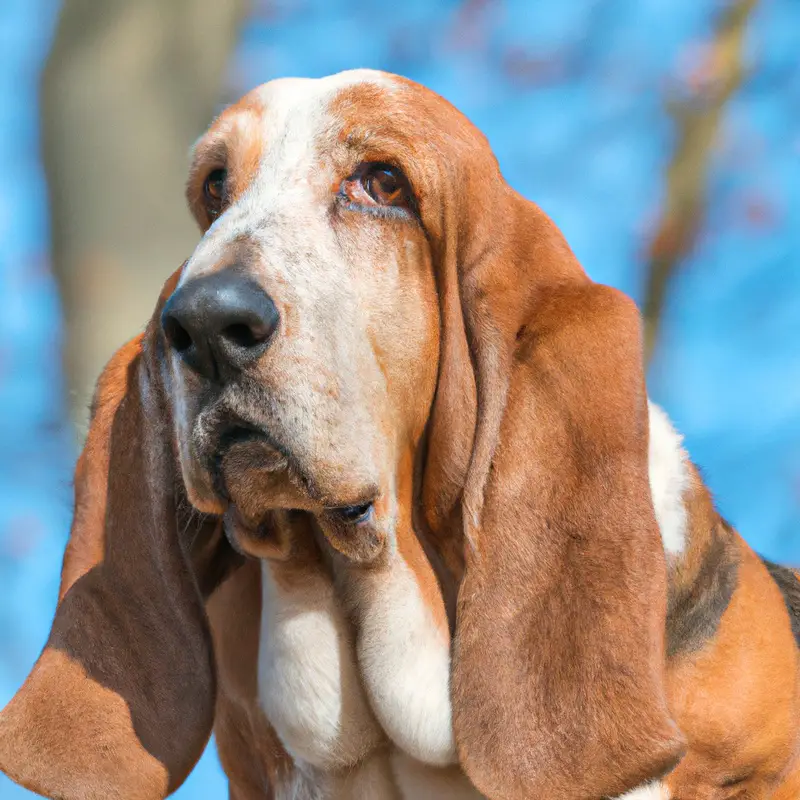
Shedding and grooming needs
Basset Hounds have moderate to heavy shedding and require regular grooming.
Their short, dense coat sheds all year round, so be prepared for some fur on your clothes and furniture.
To control shedding, brush your Basset Hound at least once a week.
Additionally, their long ears need special attention.
Regularly check for infections or odor caused by moisture buildup.
Clean the ears gently and be cautious to avoid any damage.
Proper grooming practices and regular maintenance will help keep your Basset Hound’s coat healthy and reduce shedding.
Potential for separation anxiety
Basset Hounds have a strong potential for separation anxiety.
They form deep bonds with their owners and can become distressed when left alone for long periods.
Some signs of separation anxiety in Basset Hounds include excessive barking, destructive behavior, and toilet accidents.
To help alleviate this issue, it’s important to gradually introduce alone time, provide plenty of mental and physical stimulation, and consider crate training.
Seeking professional advice from a dog behaviorist or trainer can also be beneficial in managing separation anxiety in Basset Hounds.
Prone to weight gain and obesity
Basset Hounds are prone to weight gain and obesity.
They have a tendency to overeat and are not the most active breed.
If their diet and exercise are not properly managed, they can become overweight.
This can lead to various health issues, including joint problems and decreased lifespan.
It’s important to monitor their food intake, provide regular exercise, and consult with a veterinarian to ensure their weight stays within a healthy range.
Tips for overcoming challenges
Regular veterinary check-ups and preventive care
Regular veterinary check-ups and preventive care are essential for keeping your Basset Hound healthy. I recommend scheduling annual check-ups with your vet to catch any potential issues early on.
Vaccinations and parasite prevention, such as flea and tick control, are also important to protect your dog from diseases.
Regular dental care, including brushing their teeth and professional cleanings, can prevent dental problems. Additionally, maintaining a balanced diet and exercise routine will promote overall wellness for your furry friend.
Consistent and positive training methods
Consistent and positive training methods are essential when it comes to teaching your Basset Hound good manners and obedience. Start training from a young age and be patient, as Basset Hounds can be stubborn.
Use positive reinforcement techniques like treats, praise, and rewards to encourage desired behaviors.
Consistency is key, so be clear and consistent with your commands and expectations. Avoid punishment or harsh methods, as this can create fear and mistrust.
Remember, training should be a positive and enjoyable experience for both you and your Basset Hound.
Providing sufficient exercise and mental stimulation
Providing sufficient exercise and mental stimulation is absolutely essential when owning a Basset Hound.
These dogs have a lot of energy and need regular physical activity to stay happy and healthy.
Taking them for daily walks or engaging in interactive play sessions can help burn off their excess energy.
Additionally, mental stimulation is important to prevent boredom and destructive behavior.
Puzzle toys, obedience training, and scent work activities can keep their minds sharp and entertained.
Remember, a well-exercised and mentally stimulated Basset Hound is a happy Basset Hound!
Proper grooming and coat care
Proper grooming and coat care are essential for keeping your Basset Hound looking and feeling its best.
Regular brushing will help prevent their long, droopy ears from becoming dirty or infected.
You should also clean their facial wrinkles regularly to prevent skin issues.
Basset Hounds are prone to shedding, so consistent brushing will help keep their coat neat and reduce loose hair around the house.
Additionally, be sure to trim their nails regularly and keep their teeth clean by brushing them regularly or providing dental chews.
Overall, maintaining a regular grooming routine will keep your Basset Hound happy and healthy.
Techniques to reduce separation anxiety
To reduce separation anxiety in your Basset Hound, try these techniques:
- Gradual Departures: Practice leaving for short periods of time, gradually increasing the duration to help your dog get used to your absence.
- Create a Safe Space: Set up a comfortable area where your dog can relax, such as a crate or a designated room, with toys and a cozy bed.
- Interactive Toys: Provide puzzle toys or treat dispensers to keep your Basset Hound mentally stimulated and distracted while you’re away.
- Calming Music: Play soothing music or leave the TV on to create a calming atmosphere that can help alleviate anxiety.
- Desensitization: Gradually expose your dog to cues associated with your departure, such as picking up keys or putting on shoes, without actually leaving.
- Consider Professional Help: If your Basset Hound’s separation anxiety is severe, consult a professional dog trainer or behaviorist for guidance and support.
Healthy diet and portion control
A healthy diet and portion control are essential for keeping your Basset Hound in good shape. I recommend feeding them high-quality dog food that is appropriate for their age and activity level.
Be mindful of portion sizes and avoid overfeeding, as Basset Hounds are prone to weight gain.
Also, keep treats to a minimum and opt for healthy options like fruits and vegetables. It’s important to consult with your veterinarian to determine the right diet and portion sizes for your Basset Hound’s specific needs.
Final Verdict
Owning a Basset Hound can come with its fair share of challenges. From health issues to stubbornness in training, high activity levels to shedding, there are several factors to consider.
However, with proper care, regular veterinary check-ups, consistent training methods, and ample exercise and mental stimulation, these challenges can be overcome.
It is also important to provide proper grooming, techniques to reduce separation anxiety, and a healthy diet for weight control. By addressing these challenges head-on, Basset Hound owners can create a fulfilling and rewarding relationship with their furry companions.

